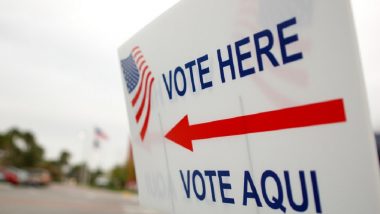This year of 2018 saw general elections that marked the growing trend of the retreat of democracy. Elections resulted in leaders being elected to lead countries who believe in more government control, less space for dissent and moving away from multilateralism.
There were elections in India’s neighbourhood that have an obvious impact on the foreign relations between countries. There were elections in other parts of the world that underline the trend of the rise of the ‘strongman.’
Here’s a look at who got elected and who got thrown out of office in 2018.
Italy: Italy held its general elections on March 4, 2018 but the high-energy campaign did not result in a clean result. Two parties with diametrically opposing political perspectives – The League Party and The Five-Star Movement (M5S) party came in the first and second place. This resulted in Italy having a hung parliament. After three months of intense negotiations a coalition government was formed on June 1, 2018. M5S-linked Guiseppe Conte was elected prime minister while the League Party’s Matteo Salvini was elected deputy prime minister and also serves as interior minister.
Since assuming power, the Italian government has taken a ‘Italy first’ approach shunning European Union’s multilateralism. Salvini has been at the forefront of demanding an end to Italy bearing the brunt of illegal migrants landing on Europe’s shores.
Russia: Vladimir Putin was elected as Russia’s president for the fourth time in March this year. During polling he garnered 76% of the votes polled.
Russia does not allow any candidate more than two consecutive terms as president but Putin got around this condition by having Dmitry Medvedev elected as president while he became the country’s prime minister. With this election in 2018, 65 year-old Putin has now been in power for 18 years.
However, elections were deemed unfair in Russia as far back as 2007 where foreign election watchers said the President’s office exerted undue influence to ensure electoral victory. Many have accused Putin of doing away with political opponents through jail and even murder so as to ensure there is no real opposition in the country. The next elections are scheduled to be held in 2024.
Malaysia: In a historic election in May this year, Malaysians elected 92 year-old former prime minister Mahathir Mohamad as their new prime minister. Mahathir Mohamad was an opposition candidate and defeated Barisan Nasional coalition which has been in power for 60 years. Mahathir Mohamad is the oldest elected leader in the world.
Soon after the elections, incumbent prime minister Najib Razak and his wife were charged with multiple cases of corruption and hoarding illegal wealth.
Venezuela: Venezuelans elected incumbent president Nicolás Maduro for a second six-year term in May this year. Considered a snap election, the original election date was scheduled for December 2018 but was subsequently pulled ahead as Venezuela’s economy spiralled into the negatives.
Many criticised the snap elections as a sham and accused the president of using food stamps and state welfare as an extortion to get his countrymen to vote for him. Voter turnout was less than half at 46%. The United States before the results were announced said it would not recognize the vote's results, while the European Union and some Latin nations warned before the vote that the election was shaping up to be unfair.
Venezuela’s economy has gone deep into a crisis with inflation hitting an astronomical 1.4 million percent this year. In 2019 that hyperinflation is expected to get worse if that was even possible and hit 10 million percent.
Turkey: After enacting a referendum in 2017 that made Turkey into an executive presidency, Recep Tayyip Erdogan pulled elections ahead from 2019 to June this year. Campaigning on a right-wing platform, Erdogan won the 2018 elections making him an executive president and head of state and head of government.
Erdogan’s reign in power has coincided with Turkey becoming a more Islamic state, suppression and jailing of political activists and purges in the government bureaucracy of those opposed to him. According to the freedom of press website, more journalists have been jailed in Turkey in 2016 and 2017 than any other country.
Pakistan: The biggest election in India’s neighbourhood took place in Pakistan in July this year. Pakistan’s government led by Nawaz Shari’s PMLN party had been roiled by corruption scandals. Nawaz Sharif resigned after a court ruling that resulted from the publishing of the Panama papers and a caretaker prime minister was put in place.
The elections saw former cricketer and chief minister of Khyber-Pakhtunkhwa province Imran Khan elected as prime minister after his party Pakistan’s Tehreek-e-Insaaf (PTI) won 116 seats in the national assembly. However, many in Pakistan consider Khan a candidate propped up by the Pakistan army. They called the Pakistan general elections unfair as candidates from other parties were not allowed to campaign in certain areas, distribution of campaigning material was restricted, and resources were pumped into Khan’s rallies.
Khan’s foreign policies are also a reiteration of the stand taken by the Pakistan army – be it the U.S. or co-operation with China. Khan’s election has also seen no change in the rate of border incursion by terrorists into Jammu & Kashmir and hence the Indian government believes Imran Khan is more of a puppet propped up Pakistan’s defence establishment.
Maldives: In a surprise result, Maldivians voted bravely and decisively to throw out Abdulla Yameen as president and elect Ibrahim Mohamed Solih a joint opposition candidate as their president. Yameen’s term was marked by instituting emergency across the country, jailing of political opponents and repression of journalists. Yameen also drew close to China and allowed Beijing to make big project infrastructure investments across the archipelago. However, Solih is re-looking at the investments negotiated with China and has said he will cancel any project that could embroil the Maldivian economy into a debt trap with the Chinese giant.
Bhutan: The third country in India's neighbourhood to go to the polls was the Himalayan nation of Bhutan. In a two-round election, the people of Bhutan gave Druk Nyamrup Tshogpa (DNT) a majority in the National Assembly. The DNT's Dr Lotay Tshering, 50, will effectively become Bhutan’s next prime minister. Bhutan also elected a new opposition party Druk Phuensum Tshogpa (DPT) which won 17 seats in the National Assembly as opposed to DNT's 30. Current prime minister Tshering Tobgay's People's Democratic Party placed a surprising third.
Brazil: Brazil elected as president a right-wing candidate, who has earned the moniker ‘Trump of South America’. Jair Bolsonaro, a politician won the Brazil general elections decisively in October. His opponents have pointed out Bolsonaro’s evocation of Brazil’s past under military rule and they fear that he will become an authoritarian leader. But in his victory speech the president-elect said that he would defend "the constitution, democracy and freedom".
Bolsonaro will be sworn in on 1 January 2019 and replace outgoing President Michel Temer, who is leaving office with a record low approval rating of 2%.
Bangladesh: Sheikh Hasina will be fighting to win another term in office as her country goes to the polls on December 30, 2018. Her opponent and former prime minister Khalida Zia has been barred from contesting elections given her multiple jail terms of five and seven years on corruption charges which ensures she is out of the picture. However, dissatisfaction against the ruling Awami League is high among Bangladeshis so the election results could go against the prime minister. Sheikha Hasina’s government has been accused of supressing journalists after mass protests brought the capital city Dhaka to a standstill earlier this year.
In domestic elections, the United States held midterm elections to its two houses of Congress. These elections are generally seen as a referendum on the ruling president as it comes two years into his presidency. US President Donald Trump’s Republican Party lost the House of Representatives with Democratic party candidates winning 39 more seats in the lower house. The US Senate which opens up 1/3rd of its seats to elections every two years saw Republicans make gains of three seats. This is not a big majority but enough to keep the Democratic Party contained with any new laws that they vote on. These results however mean that Donald Trump will have to negotiate a hostile House of Representatives for the next two years of his presidency.
2018 saw the rise of the far-right candidate from Turkey’s Erdogan to Brazil’s Bolsonaro, all espousing a ‘country-first’ policy. This trend indicates the multilateral world order is heading for tough times.
(The above story first appeared on LatestLY on Dec 24, 2018 10:20 AM IST. For more news and updates on politics, world, sports, entertainment and lifestyle, log on to our website latestly.com).













 Quickly
Quickly











